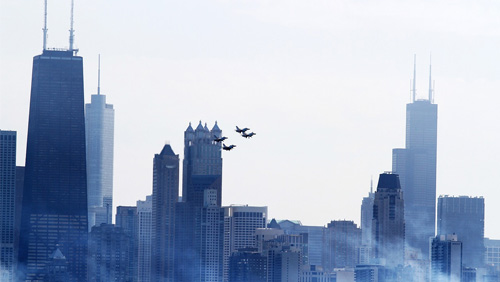Illinois just recently agreed to expand gambling operations in the state in order to shore up its coffers. The approved legislation, signed by Governor JB Pritzker in June, allows for six new casinos to be built across the state, with one planned for Chicago. Five sites had been identified as possible locations for casino development in the Windy City and the initial report of the feasibility of each  of the sites, as commissioned by the city and provided by Union Gaming (UG), was released yesterday. There’s just one “minor” issue. Out of the five suggested locations, not a single one met with approval.
of the sites, as commissioned by the city and provided by Union Gaming (UG), was released yesterday. There’s just one “minor” issue. Out of the five suggested locations, not a single one met with approval.
The sites included a vacant lot in Lawndale, a lot adjacent to the Harborside International Golf Center, a lot close to Guaranteed Rate Field, a former home to a steel factory on the south side of the city and the former site of the Michael Reese Hospital in Bronzeville. All sites have found their opponents, including Bronzeville resident Pat Dowell, who states, “A casino … is simply not appropriate for this site. A Bronzeville casino would destroy the neighborhood’s character without maximizing the benefit to Chicago.”
The UG analysts have determined (in pdf) that none of the sites are practical because of a “very onerous” tax structure. That structure was implemented by the state’s General Assembly in conjunction with the expanded gambling operations approved in the state. UG says in its analysis, “We analyze these sites herein, and also provide thoughts on incremental revenues that could be realized by placing the casino in an alternative, more tourist-friendly, area. However, the current regulatory construct, namely the highest effective gaming tax and fee structure in the U.S., makes any casino project – regardless of location – generally not financially feasible.”
Chicago Mayor Lori Lightfoot wasn’t too surprised by the results. She had already indicated that the tax structure could be a potential deal-breaker, as the upfront fees the General Assembly wants operators to pay are too high. According to the gambling laws, a $250,000 application fee is required, along with a reconciliation fee of $15 million once a license is issued. After that, casinos would still be on the hook for as much as $120 million in gambling position fees.
An economics professor with Northeastern Illinois University believes he has an economically-viable solution. Dr. Michael Wenz asserts, “You want to be in a place where you’ll have a high demand for gambling services, and being close to downtown Chicago is a way to address that. So I’d be in a place where you can draw the gamblers from downtown, especially tourists, but draw the economic development and employment opportunities from the areas you want to draw the workers from.”
It now appears that Chicago will head back to the drawing board. Mayor Lightfoot was prepared for the outcome of the report and has previously stated that she, and other lawmakers, will try to work with the General Assembly in order to come up with an alternative tax plan that will make a Chicago casino more enticing to the gambling industry.